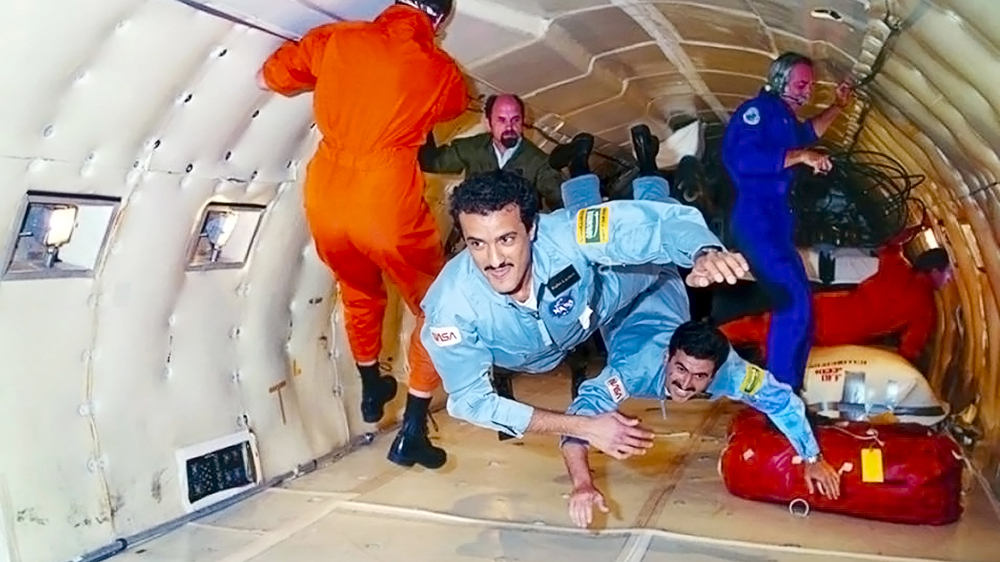By Yazeed Aldughaither
Editor-in-Chief
Humankind’s fascination with space predates history itself. For millennia, humans have pondered the mysteries of the final frontier. Celestial bodies have been worshiped by prehistoric societies, inspired artists, and served as vital navigation tools for explorers throughout time. The inherent drive to comprehend and explore space is deeply intertwined with fundamental human drives for curiosity and innovation.
However, it is noteworthy that our first daring space missions have only occurred within the past half-century, which is but a fraction of the time that humanity has gazed towards the cosmos. In this modern era, countries are vying for their places within the annals of space exploration history, and the Kingdom is no exception to this ambitious endeavor. The results of these forays promise to have profound technological, scientific, and existential implications. As the Kingdom takes its first strides into this expanse, what can we expect from this interstellar form of mobility?
As the Kingdom takes its first strides into this expanse, what can we expect from this interstellar form of mobility?

The emblem for Rayyanah Barnawi and Ali Alqarni’s mission
Figure 1
First established as a commission in 2018, the Saudi Space Agency (SSA) is an independent governmental body chaired by the Minister of Telecommunications & Information Technology, H. E. Abdullah Alswaha. It stands as a testament to the Kingdom’s commitment to venture beyond the bounds of Earth. Among SSA’s stated objectives and roles are to prepare studies and research, develop satellite systems and technologies, execute human exploration missions, and support the peaceful use of space technologies.
With that said, the Kingdom’s involvement in this domain is not a recent development. The first Arab to journey into space was HRH Prince Sultan bin Salman, who, in 1985, joined a seven-member crew aboard the space shuttle Discovery. During his seven-day stint in space, Prince Sultan bin Salman represented the Arab Satellite Communications Organization (ARABSAT), carried out several experiments designed by Saudi scientists, and even had a call with his uncle, HRH the late King Fahd. Shifting our focus back to the present, the Kingdom is now proud to have two Saudi astronauts (Rayyanah Barnawi and Ali Alqarni) embarking on a momentous mission to the International Space Station (ISS), marking a first milestone in a new era for Saudi space exploration. “The first day or so we all pointed to our countries. On the third or fourth day, we were pointing to our continents. By the fifth day, we were aware of only one Earth.” – HRH Prince Sultan bin Salman.
“The first day or so we all pointed to our countries. On the third or fourth day, we were pointing to our continents. By the fifth day, we were aware of only one Earth.”
– HRH Prince Sultan bin Salman

HRH Prince Sultan bin Salman in training for his mission
Figure 1
While tremendously exciting, space exploration is also associated with astronomical costs. This reality has prompted many to raise a valid question: What’s the point? Are there not worthier causes for spending the millions spent on individual missions? (For reference, NASA’s 2023 budget was approximately $25 billion). The simple answer is that space exploration provides an invaluable avenue for scientific human progress. The potential for discoveries and inventions resulting directly from space exploration and experimentation is likely to yield drastic advancements in the quality of life on Earth in the long term.
It is also a noble cause, as the dividends of these endeavors may only be realized by future generations, as we have realized with the contributions of luminaries such as Copernicus, Galileo, Kepler, and countless others. Space exploration has already enabled many inventions and technologies that we take for granted, including but not limited to satellite communications (e.g. the internet, GPS, and television), medical imaging technology (e.g. MRI and CAT scans), portable cordless vacuums, smoke detectors, and solar panels. Beyond these pragmatic considerations, space exploration also has substantial philosophical implications regarding our Earth’s humble place in the universe.
Examining space exploration from the perspective of the energy industry unveils intriguing parallels. Beyond its contribution to various forms of renewable energy, technologies used in space exploration also rely on sophisticated remotely-actuated equipment much like those used in subsurface completions. The same rovers used to probe the surface of planets like Mars have been used to inspect oil and gas facilities, which underscores these industries’ often-overlooked interconnectedness.
Both these fields also heavily depend on testing, logging, and monitoring equipment which utilize seismic, nuclear, and electromagnetic sensing devices, among others. In a broader sense, space exploration and the energy industry are deeply committed to technological innovation that can drive the well-being and progress of life on Earth. Finally, both industries benefit from global cooperation and collaboration to share expertise, resources, and infrastructure.
As we direct our attention to the future of our human civilization, and particularly considering the Kingdom’s role on the global stage, we are bearing witness to a variety of interconnected shifts, challenges, and critical developments in both the energy landscape and space exploration.
While the global energy industry is adapting to a sustainable net-zero future, we are witnessing an increasing number of countries propelling their space programs to new heights, as exemplified by India’s recent lunar mission. Both of these endeavors will depend on rapid technological development and policy shifts, with the ultimate goal of enriching life on Earth. We may even witness an era where the two fields directly intersect, as some experts posit the feasibility of mining natural resources from extraterrestrial planets.
Extrapolating the trajectories of these two industries holds tremendous promise for humanity’s future, one where our collective efforts, driven by curiosity and ingenuity, can lead us toward a future as bright as we can imagine. In the words of Carl Sagan, “We make our world significant by the bravery of our questions and the depth of our answers”.
“We make our world significant by the bravery of our questions and the depth of our answers.”

